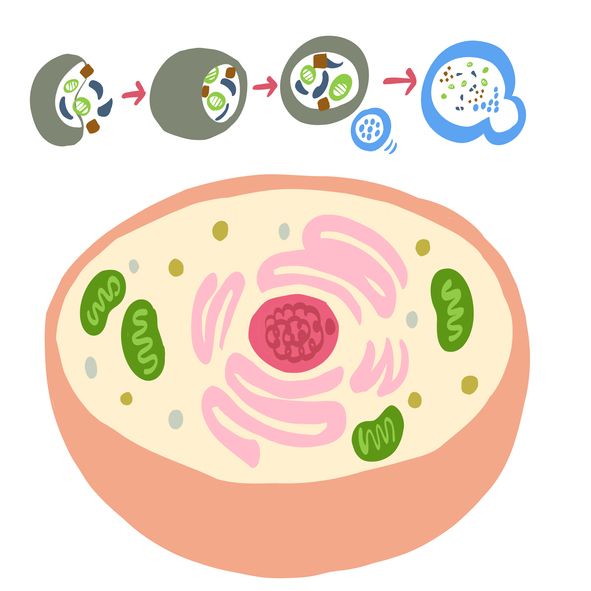
- Home
- Trend
- Weight Loss Strategies
- Acne Tips
- Hair Health Information
- Blemish Removal Tips
- Acne Scar Removal Tips
- Muscle Building Techniques
- Intimate Care Tips
- Postpartum Intimate Care
- Eye Bags Wiki
- Tips for Face Slimming
- Secret of Permanent Hair Removal
- Breast Enlargement Tips
- Cure to Snoring
- Marionette Lines
- Skin-Tightening Secrets

免費體驗
S6 Body Sculpting Treatment
1 Minute Self-Registration
Date should not be before minimal date
In our modern world, where weight loss and improved metabolic health are major concerns for many individuals, intermittent fasting (IF) has emerged as a powerful and sustainable method that goes beyond mere dieting. It's a lifestyle change that can yield significant results when approached correctly. This comprehensive guide will delve into the concept of intermittent fasting, its impact on weight loss, and how it can positively affect metabolic disease risk markers. Moreover, we'll outline various intermittent fasting plans and offer tips for successful implementation. We'll also explore related concepts like time-restricted eating, continuous calorie restriction, and the consumption of fewer calories for those who are seeking a variety of approaches to achieve their health and fitness goals.
1
What is Intermittent Fasting and How it Affects Our Body Weight?

Intermittent fasting is a dietary approach that revolves around when you eat rather than what you eat. It involves cycling between periods of eating and fasting. During the fasting periods, you consume minimal to no calories, while during the eating windows, you can eat as you typically would. This approach has gained immense popularity due to its effectiveness in promoting weight loss and metabolic health improvements.

2
The Fasting Period: Unlocking the Power of Autophagy

One of the key mechanisms at play during intermittent fasting is autophagy, a cellular process that removes damaged or dysfunctional components within your cells. Autophagy is particularly active during fasting periods, allowing your body to clean house, so to speak. This process is linked to various health benefits, including improved metabolic function and protection against metabolic diseases. The concept of autophagy is crucial in understanding how intermittent fasting affects your overall well-being.
- Slim Thighs: 8 Foods + Exercises + Tried-and-Tested Treatment
- Clothes Slipping Off? Here’s How To Target The Shoulder Muscles + Quick Treatment For Perfect Shoulder And Neck Lines!
- Saggy Belly After Giving Birth? 4 Golden Rules To Reduce Postpartum Belly + 3 Core Exercises
- Muscle-Gain Diet Essentials: 5 Key Rules + 4 Simple Hacks + Nutritionist's Guide To Busting 7 Common Myths!
3
Effects of Intermittent Fasting on Metabolic Disease Risk Markers

Let's take a closer look at how intermittent fasting influences key markers related to metabolic diseases and weight loss.
Weight loss and caloric restriction
A primary driver of weight loss with intermittent fasting is caloric restriction. By narrowing the window in which you consume your daily calories, IF naturally reduces your overall calorie intake, creating an energy deficit. This deficit leads to weight loss over time, provided that you do not compensate by overeating during your eating windows. The reduction in calorie intake is a fundamental aspect of many intermittent fasting methods, and it can significantly contribute to losing excess weight.
Improved insulin sensitivity
Insulin sensitivity is a crucial factor in metabolic health. Reduced sensitivity to insulin can lead to elevated blood sugar levels and contribute to the development of type 2 diabetes. Intermittent fasting has been shown to enhance insulin sensitivity. During fasting periods, your body needs to regulate blood sugar efficiently, leading to better control of blood glucose levels. Improved insulin sensitivity also promotes fat utilisation for energy, which can aid in weight loss. This is especially important for individuals concerned about their metabolic health and those at risk of diabetes.
Enhanced fat burning
When you fast, your body experiences a shift in energy source. With no immediate access to food, it turns to stored fat for fuel, leading to enhanced fat burning. This not only contributes to weight loss but also helps reduce fat deposits, particularly visceral fat, which is associated with an increased risk of metabolic diseases. Enhanced fat burning is a key aspect of intermittent fasting that can help individuals achieve their weight loss goals.
Appetite regulation
Intermittent fasting can help regulate hunger hormones, such as ghrelin and leptin. Ghrelin is responsible for signaling hunger, while leptin signals fullness. During fasting periods, ghrelin levels initially rise, but they tend to drop as your body adapts to the fasting routine. This can make it easier to control cravings and reduce overall food consumption, ultimately contributing to weight loss. Appetite regulation is a crucial component of intermittent fasting for those seeking to reduce calorie intake and lose weight.

4
Eating Periods Matters? Different Approaches to Intermittent Fasting

Now that we understand the science behind intermittent fasting let's explore various approaches you can choose from to embark on your weight loss and metabolic health journey. In addition to traditional intermittent fasting, we will also discuss related concepts such as time-restricted eating, continuous calorie restriction, and consuming fewer calories as alternative strategies.
1. 16/8 Method
The 16/8 method is one of the most popular approaches to intermittent fasting. It involves fasting for 16 hours and restricting your eating to an 8-hour window. For example, you might eat between 12 PM and 8 PM and fast from 8 PM to 12 PM the next day. This method offers flexibility and is relatively easy to incorporate into your daily routine. It can be seen as a form of time-restricted eating, where your eating period is limited to a specific time window.
2. 5:2 Diet
In the 5:2 diet, you eat normally for five days of the week and restrict your calorie intake to around 500-600 calories on the remaining two non-consecutive days. This approach provides more flexibility in terms of when you fast during the week, making it an attractive option for those with varying schedules. The 5:2 diet is an example of intermittent fasting combined with continuous calorie restriction, where you significantly reduce calories on specific days.
3. Eat-Stop-Eat
Eat-Stop-Eat involves fasting for a full 24 hours once or twice a week. This approach can be more challenging due to the extended fasting period but can yield significant results. It's essential to plan your fasting days carefully and stay hydrated during this time. Eat-Stop-Eat represents a more intense form of intermittent fasting with periodic 24-hour fasts.
4. Alternate-Day Fasting
As the name suggests, with alternate-day fasting, you alternate between fasting days and regular eating days. This approach can be adapted in various ways, such as eating very low calories on fasting days or consuming one small meal. It's important to find a balance that works for you and fits your lifestyle. This method is a combination of intermittent fasting and consuming fewer calories on fasting days.
5. The Warrior Diet
The Warrior Diet involves eating small amounts of raw fruits and vegetables during the day and having one large meal in the evening. This method combines a daily fasting period with a substantial feast, which may suit those who prefer eating larger, satisfying meals. It's a unique approach that falls under the umbrella of intermittent fasting but emphasises consuming fewer calories during the day and having a single, substantial meal in the evening.
免費體驗
S6 Body Sculpting Treatment
1 Minute Self-Registration
Date should not be before minimal date
5
Intermittent Fasting Guide for Your Weight Loss Plan

Here's a sample intermittent fasting plan that you can tailor to your preferences and schedule. This plan also incorporates elements of time-restricted eating and calorie reduction for a comprehensive approach to weight loss and improved metabolic health:
Weekdays (16/8 Method)
- 8:00 AM: Wake up and start your fasting period. - 12:00 PM: Break your fast with a balanced meal. - 4:00 PM: Enjoy a healthy snack. - 8:00 PM: Conclude your eating window.
Weekends (12/12 Method)
For a more relaxed approach on weekends, you can opt for a 12-hour fasting window: - 9:00 AM: Begin your fasting period. - 9:00 PM: Break your fast with a nutritious meal.
This plan allows for a longer eating window on weekends, making it easier to socialise and enjoy meals with family and friends. It's a practical example of how intermittent fasting and time-restricted eating can be integrated into your lifestyle.

6
What You Need To Know for A Successful Intermittent Fasting

For effective weight loss and improved metabolic health with intermittent fasting, consider the following tips:
1. Stay Hydrated, not just water
During fasting periods, it's essential to stay hydrated. So water, herbal tea, and black coffee are excellent choices. Staying hydrated not only supports your overall well-being but can also help control hunger and cravings. Adequate hydration is crucial for maintaining your energy levels and managing your appetite.
2. Choose nutrient-dense Foods
When you do eat, make wise food choices. Focus on nutrient-dense foods like lean proteins, whole grains, fruits, and vegetables to meet your nutritional needs while managing your calorie intake. Opting for nutrient-dense options ensures that you provide your body with essential vitamins and minerals while keeping your calorie intake in check.
3. Don't give up halfway
Consistency is key to seeing results with intermittent fasting. Stick to your chosen fasting schedule, and over time, your body will adapt to the routine, making it more manageable. Consistency is essential for achieving your weight loss and metabolic health goals, whether you are following time-restricted eating or any other intermittent fasting method.
4. Listen to Your Body
Intermittent fasting is flexible. If you're feeling unwell, overly hungry, or experience any adverse effects, consider adjusting your fasting window or the fasting method you're following. Your well-being should always be a priority. It's crucial to listen to your body and make modifications as needed to ensure that intermittent fasting is a sustainable and healthy approach for you.
5. Complement it with a suitable weight loss treatment
Fasting is undeniably a valuable aspect of your weight loss journey; however, to truly optimise your results, it's essential to consider an effective weight loss strategy. Non-invasive body sculpting treatments emerge as a compelling option to target those persistent fat pockets, ultimately aiding you in achieving a more sculpted and toned physique. These treatments complement your lifestyle adjustments and are expertly administered by licensed professionals, such as Perfect Medical's cutting-edge S6 Body Sculpting Treatment.
This innovative approach employs a high-powered bio-laser, penetrating deep into your fat layers, effectively liquefying excess fat. Although a choosing to do diet can certainly contribute to weight loss, it's worth noting that treatments like the S6 Body Sculpting Treatment offer an expedited path to fat reduction, simultaneously shaping your body for a more desirable silhouette.
- Green Coffee Weight Loss: An Approach That Brings You More Than Just Lowering Body Weight
- Oatmeal For Weight Loss: GEM And Barbie Hsu Lost 10 Pounds In A Month?
- 5 Good things about exercise: Why Women Over 30 Should Start Working out as Soon as Possible
- Try This Meal Plan with High Protein Foods to Lose Body Weight and Improve Health!
7
What Can Happen If I Do This Every Day?

Intermittent fasting, if done over an extended period, can have various effects on your body. Here are some potential outcomes:
- Weight Loss: Intermittent fasting can help you lose weight by reducing your overall calorie intake. When you consistently consume fewer calories during your fasting periods, you may create a calorie deficit, leading to weight loss. - Improved Insulin Sensitivity: Fasting can enhance insulin sensitivity, which may lower your risk of type 2 diabetes. It helps your body become more efficient at using insulin to regulate blood sugar levels. - Cellular Autophagy: Extended periods without food can trigger a process called autophagy. This is when your cells remove damaged components and regenerate, potentially promoting cellular health and longevity. - Better Heart Health: Some research suggests that intermittent fasting may have cardiovascular benefits, such as reducing blood pressure, improving cholesterol profiles, and decreasing inflammation. - Mental Clarity: Many people report improved mental clarity and focus during fasting periods, possibly due to stabilised blood sugar levels and increased production of brain-derived neurotrophic factor (BDNF). - Muscle Preservation: While intermittent fasting can lead to weight loss, it's generally muscle-sparing, meaning it prioritises fat for energy and aims to preserve lean muscle mass. - Hormonal Changes: Fasting can affect various hormones in your body, such as ghrelin (the hunger hormone), insulin, and growth hormone. These hormonal shifts may contribute to the benefits of intermittent fasting.
It's important to note that the effects of intermittent fasting can vary from person to person, and the long-term impact may depend on factors like your individual health, diet during eating windows, and the specific fasting protocol you follow. However, if you notice any side effects that arise when you are trying to use intermittent fasting to lose weight, you should stop it immediately and check with your doctors to prevent any issues from happening to your body.

8
Before You Go

In conclusion, experimenting with intermittent fasting can be an intriguing approach to managing one's eating patterns and achieving a range of potential health benefits. From weight loss and improved insulin sensitivity to enhanced mental clarity and cardiovascular health, fasting may help individuals in their quest for a healthier lifestyle. However, it's essential to remember that the effects of intermittent fasting can vary from person to person, and success largely depends on finding a fasting regimen that aligns with your unique needs and preferences, so you can incorporate this healthy diet method with other solution like weight loss treatment to lose weight more efficiently!

免費體驗
S6 Body Sculpting Treatment
1 Minute Self-Registration
Date should not be before minimal date
FAQ

1. How many days per week should I try intermittent fasting?
The number of days per week you should try intermittent fasting depends on your goals and preferences. Many people start with 3-4 days a week and gradually increase the frequency. It's essential to find a schedule that is sustainable for you and aligns with your lifestyle.
2. Is intermittent fasting suitable for everyone?
Intermittent fasting is generally safe for most healthy individuals. However, it may not be suitable for pregnant or breastfeeding women, people with certain medical conditions, or those with a history of eating disorders. It's crucial to consult a healthcare professional before starting any fasting regimen to ensure it's appropriate for you.
3. Can I exercise while fasting?
Yes, you can exercise while fasting, but the timing and intensity of your workouts may need adjustment. Some people prefer to exercise during their eating windows to ensure they have enough energy. Others find that light to moderate exercise during fasting periods works well for them. Listen to your body and choose a strategy that suits your fitness goals.
4. How long does it take to see results with intermittent fasting?
The time it takes to see results with intermittent fasting can vary from person to person. Some individuals may notice changes in a few weeks, while others may take several months. Consistency, a balanced diet, and physical activity are key factors in achieving desired results.
5. Can I drink water or other beverages during fasting periods?
Yes, staying hydrated is essential during fasting periods. You can drink water, herbal tea, black coffee, or other non-caloric beverages to help control hunger and maintain your energy levels. Avoid sugary or high-calorie drinks, as they can break your fast.








